Best NFT Marketplaces for Music
Trading Music NFTs and earn BSC, FTM and polygon via NFTs can be very profitable.
February 19, 2022
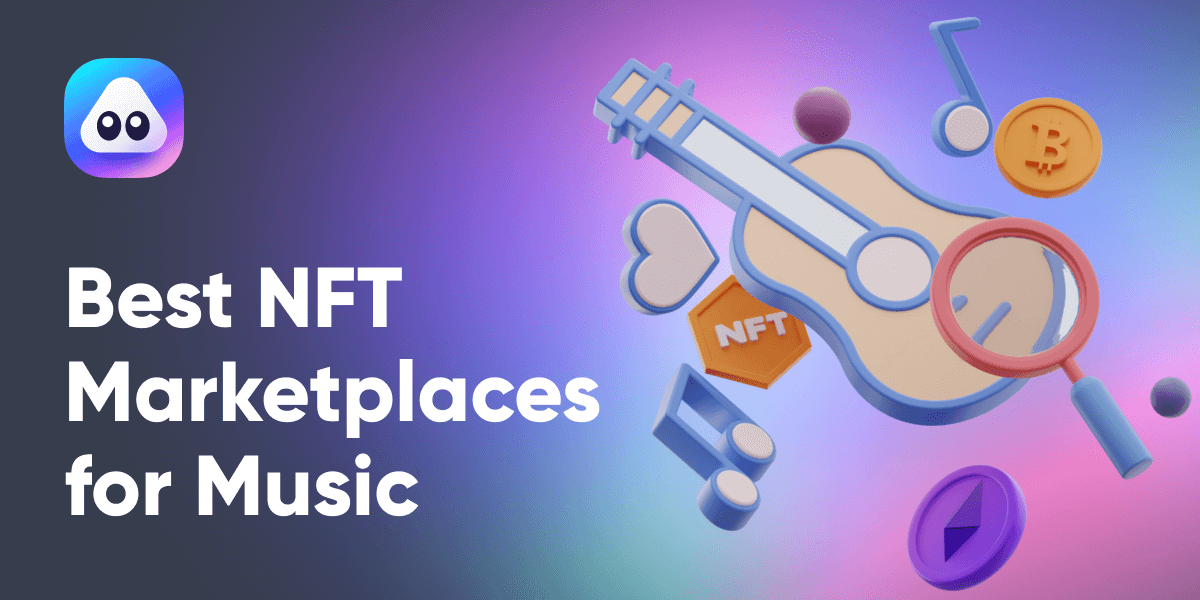
The music industry may have finally started taking NFTs more seriously. A number of artists have launched music NFT projects that have increased fans' attention and generated millions of dollars in revenue. The NFT and crypto space is still in its infancy, especially in the music space, but perhaps the potential for more direct interaction between artists and fans, as well as new ways of monetizing digital works without resorting to traditional music publishers, make this a promising technological development.
What are Music NFTs?

If you don't know what NFTs mean, we recommend you check out our previous article on what they are and if they are here to stay.
Now, music NFT is a certificate of ownership of a unique musical work that can be sold to another party. The owner has the exclusive right to determine how the composition is used. The term “NFT” applies to all kinds of fungible (multiple copies exist and are held by different parties) tokens secured on a blockchain that grants the owner the right to the music, album art, or videos created to accompany the music, or other exclusive access to content.
Beyond the strict definitions of what constitutes a non-fungible or fungible token, music NFTs help music composers, bands and artists connect and interact with their listeners in new ways.
How do they work?
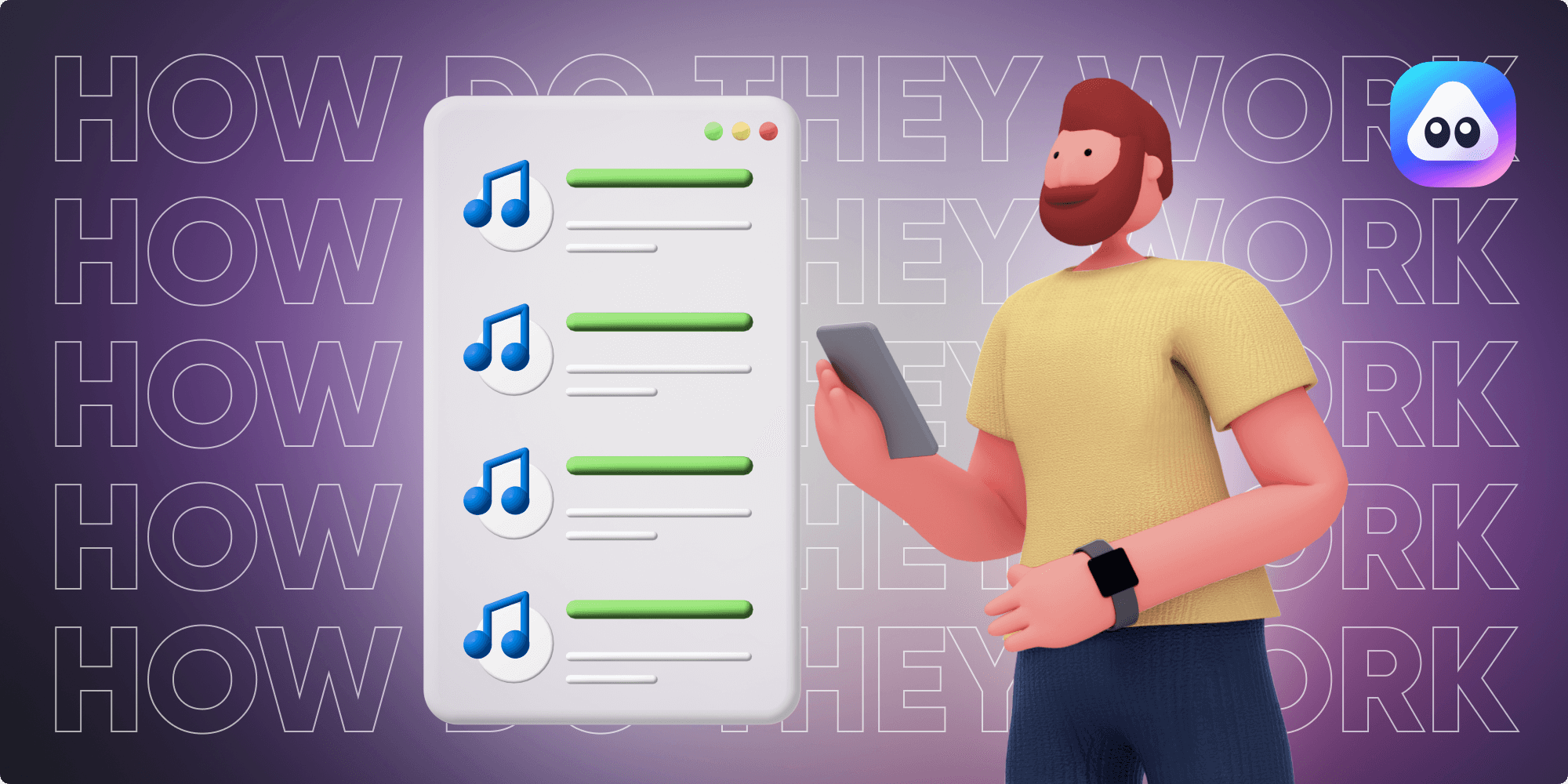
When producing or selling music NFTs, the principle remains the same as for other NFTs. A musician decides what he wants to sell to his fans, whether it is an audio file, NFT concert tickets or any other NFT merch. Then he/she determines on which blockchain he/she will mint the music NFT, or which music NFT marketplace he will use.
After identifying the NFT marketplace of their choice, they will inform their fans of the release of their music NFT drop, and put them up for sale at the value they want to sell it.
Since music NFTs (and all other NFTs) cannot be reproduced, they may decide to hold a one-time sale of an audio file, where the highest bidder owns the original audio file (but not the copyright). Or they may decide to create a limited number of music NFTs of the same audio file, say 20,000, and offer them for sale on a music NFT marketplace.
Each fan who buys a music NFT becomes the owner of his favorite musician's work. He/she can then store the music NFTs in his/her cryptocurrency wallet or resell them later to a higher bidder. Although he/she owns the unique NFT and can sell it, the musician who created the NFT can make money by reselling his work, which is one of the most powerful ways that music NFTs can empower musicians.
What do they solve?
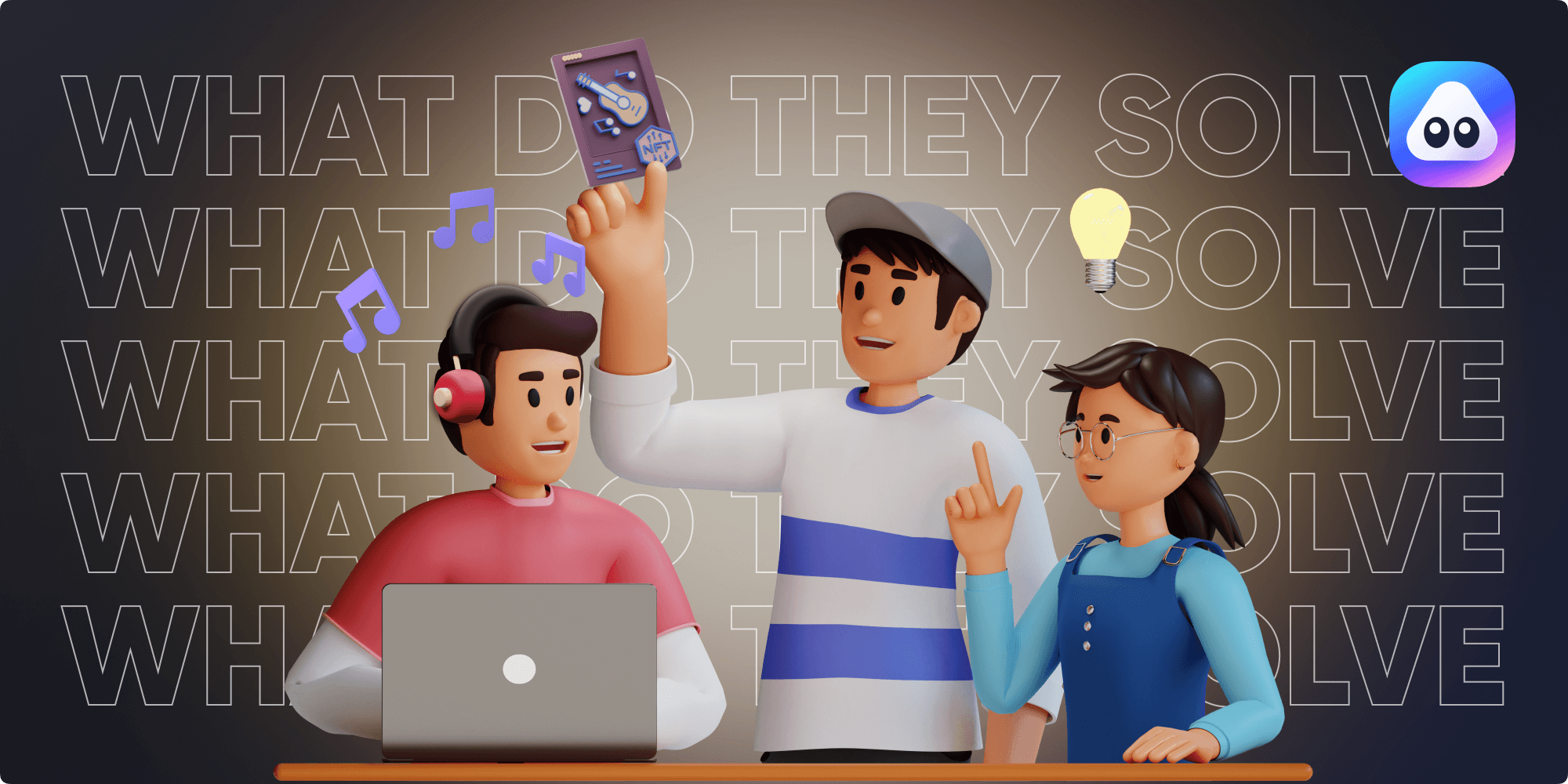
In addition to earning income from immediate sales of music NFT, let's look at other ways in which NFTs can empower musicians:
Earning of royalties
Musicians who create NFTs and sell them will earn on subsequent sales of their NFTs. This will alleviate the problem of musicians not making money on the sale of their work, or making only small amounts from centralized streaming services.
Create an active fan base
Music NFTs allow a musician to build an active fan base by creating a space in which fans can access unique NFTs related to the artist's work. For example, events such as NFT airdrops allow musicians to reach an audience they may not have had access to before.
Musicians can also leverage unique experiences for their fans, such as giving them the opportunity to meet them virtually or in person. This is what musicians like Snoop Dogg did during his SandBox session, as well as Post Malone, who sold NFTs for people to play beer pong with him.
Cutting out the middleman
One of the main challenges musicians face is that they are usually under contract with a record label. On the other hand, most independent musicians make their money through streaming platforms. Music NFTs is a solution for both, as they allow musicians to make money by selling directly to their fans.
Spotify only pays between $0.003 and $0.005 for each stream played, and many record labels pay even less. Subsequently, artists only make around 12% of the revenue that they create from the music industry. A tweet by @LucaLush shows the power of NFTs as they state a 1/1 NFT of their song sold for 0.45 ETH ($1734.40) which is equal to 2.5 million streams on a major label. Probably nothing, right? Wrong… this is massively bullish for Music NFTs because they bring power back to the creator, no matter their size. Fans follow creators, so it is only a matter of time before more artists adopt this kind of model, bringing more eyes and more money to the space.
Real-world utility
Some of the biggest names in music such as Kings of Leon, Wu-Tang Clan, and Nas have had some sort of involvement with music NFTs. Kings of Leon’s NFT drop provided multiple different tiers, with the lowest providing exclusive artwork and the most expensive known as a ‘Golden Ticket’. Each of these tickets guarantees the owner four front-row seats to one show of every Kings of Leon headline tour for life! With the cheapest currently listed on OpenSea for 333 ETH.
How to earn more with Music NFTs?
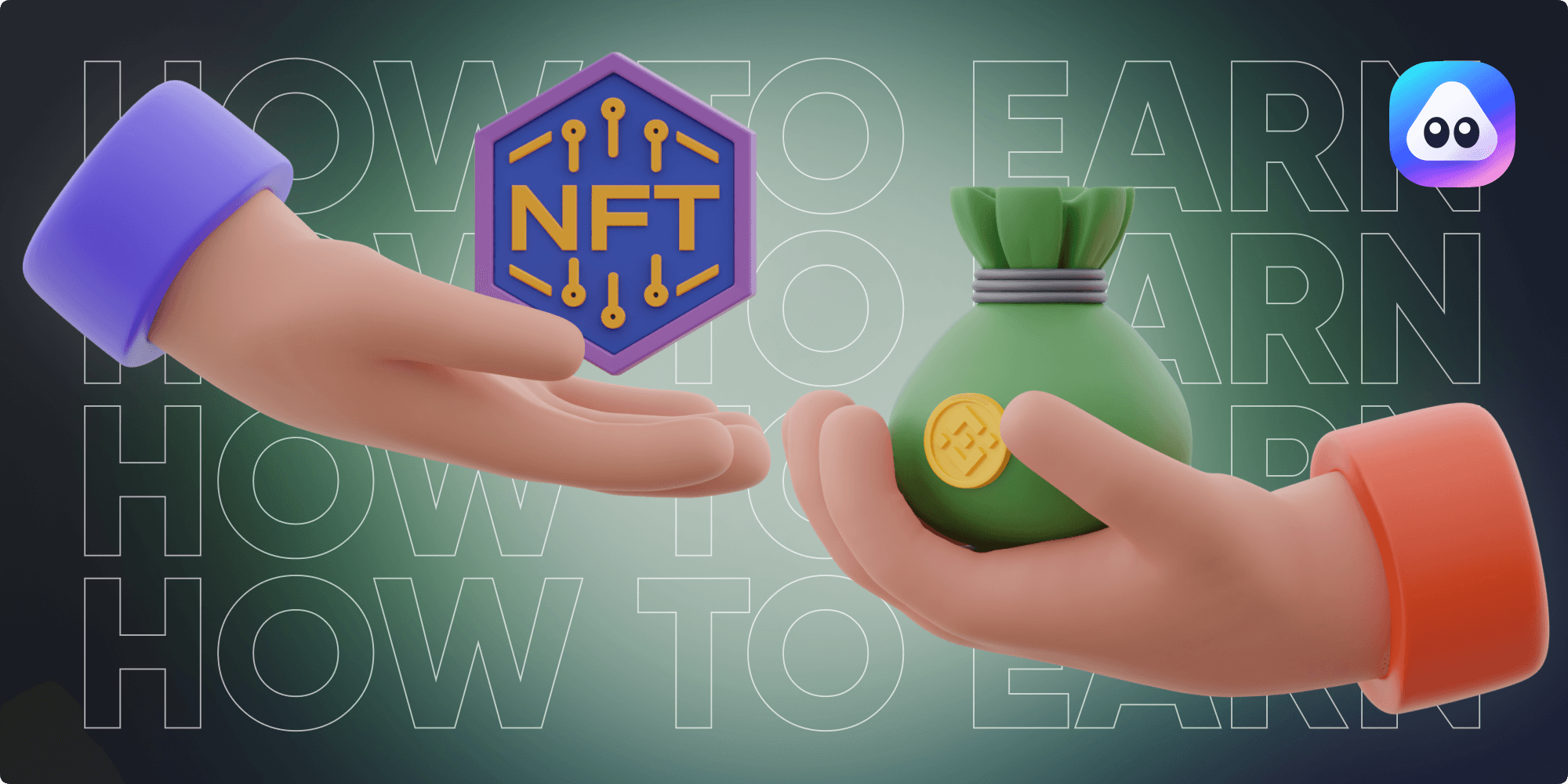
- NFT Marketplaces such as OpenSea and Rarible allow musicians to receive royalties on future NFT sales. This means that every time the musical NFT sells, the creator or owner of the NFT receives royalties on secondary sales. This percentage is set when the musician mints their music NFT,
- Bundle NFTs: platforms like OpenSea allow NFT creators to bundle NFTs and sell them all at once. This allows for quick sales and saves service fees for music creators,
- NFT Collections: you can collect music NFTs from artists you support or believe will explode in popularity over time,
- NFT Funds: you can look to NFT-indexes such as the Bitwise NFT Index to gain diversified exposure to an entirely new frontier in digital art and culture. The Fund seeks to track an index of the most valuable (as defined by market capitalization) and well-established NFT collections in the Arts and Collectibles sector.
What are the best NFT marketplaces for Music NFTs?
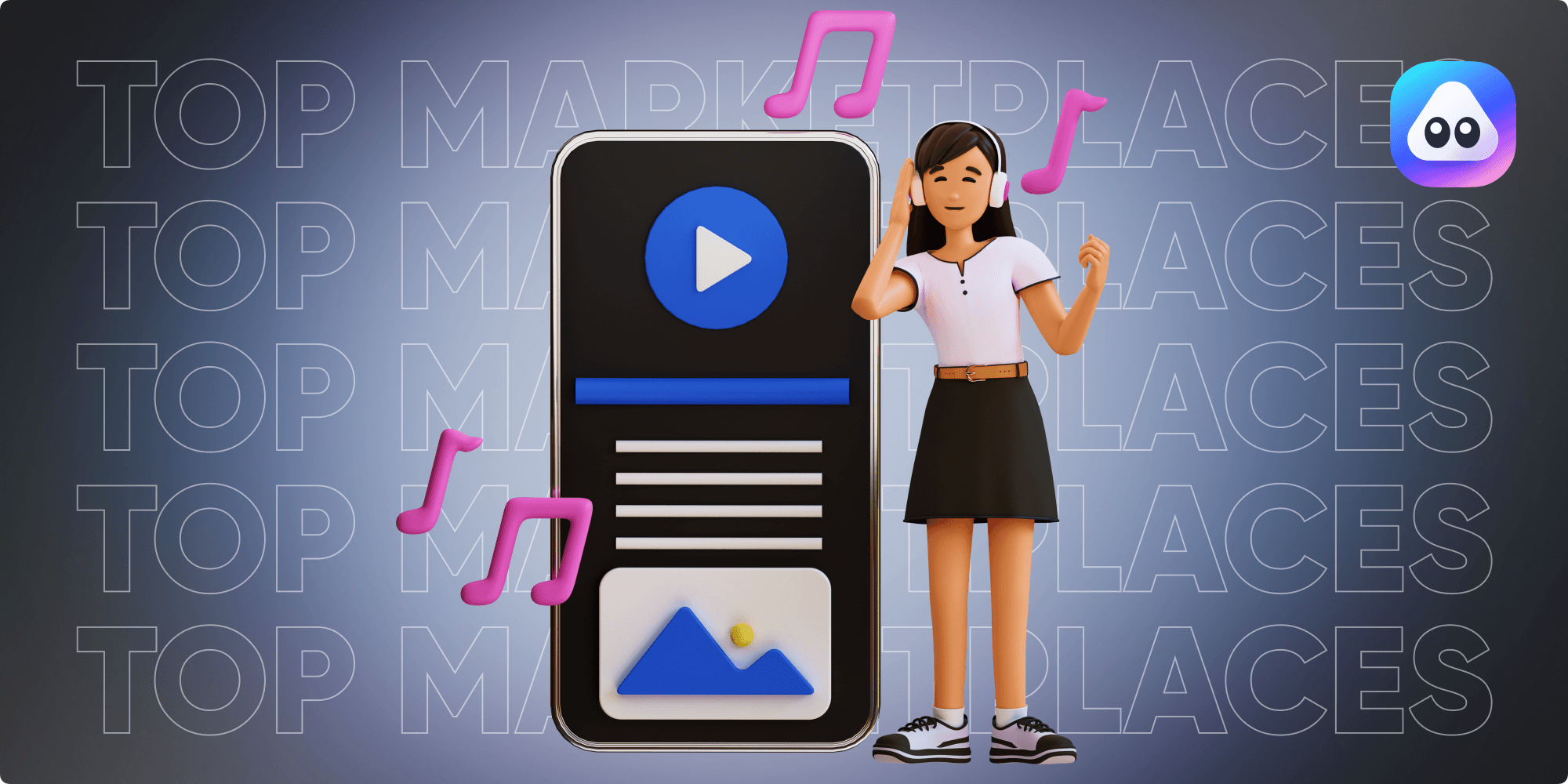
1. OpenSea
OpenSea is by far the largest and most used platform for NFTs. And that includes music NFTs. Founded in 2017 and to date has done over USD 500M volume in NFT sales on the platform.
It doesn’t matter what NFT you want to create or sell, you can sell pretty much everything as NFT, including music NFTs, NFT games, and other NFT artworks. It’s interesting to note that the ERC-1155 and ERC-721 tokens are supported by the OpenSea platform, and every time a consumer purchases one of their products on OpenSea, the creators of NFT on OpenSea receive royalties. Also, the platform allows creators to mint NFTs via lazy minting, which means you can list NFTs for free without having to pay an ETH gas fee to do so.
2. AirNFTs
The advantages of BSC and Polygon networks over the musical NFT are clear. They are faster, cheaper and extremely popular. This makes AirNFTs one of the best music NFT marketplaces for musicians entering this world for the first time. The low cost of entry is a key factor in attracting customers and creators.
3. NFT Showroom
NFT Showroom is a digital art marketplace built on Hive. This is an NFT marketplace where rare items are sold. If you are an artist with unreleased songs, this might be the place for you. It's important to note that they only sell NFTs and do not offer minting services. Check out our previous article to discover the top blockchains where you can buy and mint your NFTs with low gas fees.
4. SuperRare
SuperRare is a marketplace to collect and trade unique, single-edition digital artworks. It’s still in its infancy and only allows a small number of artists at the moment. But the artists are personally selected, which allows getting a certain exclusivity. Just know that they pay you 85% of the total price paid.
5. Nifty Gateway
The Nifty Gateway NFT marketplace is quite large and is aimed specifically at music NFTs. It’s a centralized marketplace where a central authority controls every sale, minting, etc. If you're looking for a very curated selection of NFT, Nifty Gateway could be your marketplace of choice. It offers tri-weekly drops and has hosted renowned artists like Eminem, Grimes and The Weekend. However, unlike other more selective marketplaces, Nifty Gateway also offers a space for unverified creators looking to showcase their art.
6. Sound.xyz
Sound.xyz is a new startup looking to help emerging artists monetize their work more effectively through NFTs by releasing limited-time drops, as the startup looks to build out a suite of tools designed to bring musicians into the so-called “web3” fold.
7. Rarible
Rarible is another popular general NFT marketplace and, same as OpenSea, it allows creators to mint music NFTs via lazy minting. This is very useful for beginners as it cuts down the number of transactions they need to make and sell music NFTs.
8. Catalog
Catalog is a specialized marketplace for 1-of-1 NFT music releases.
9. Mint Songs
Mint Songs is another music NFT marketplace running on the Polygon blockchain, helping music artists build web3 communities by building tools that enable music artists to turn their core creative assets into NFTs that they can sell and giveaway to their community. Users can mint their songs (audio + album artwork) into NFTs for $0 gas/network fees.
10. Audius
Audius is aiming to use blockchain technology to democratize the music industry. It runs a streaming platform similar to Spotify, where artists can monetize their music NFTs via the native AUDIO token. It’s also slowly begun to move into the NFT space in recent months, allowing its users to connect their Ethereum and Solana music NFTs to their profiles.
Final thoughts
With some high-profile artists starting to bankroll serious pay using NFTs in the past year, the groundwork could be laid for yet another transformation of the music industry down the road.
Can NFTs replace record labels and streaming giants? Probably not anytime soon. However, they represent a bold escape from the record company status quo, and they point to new avenues of self-sufficiency for musicians who have been preyed upon by middlemen for too long.
